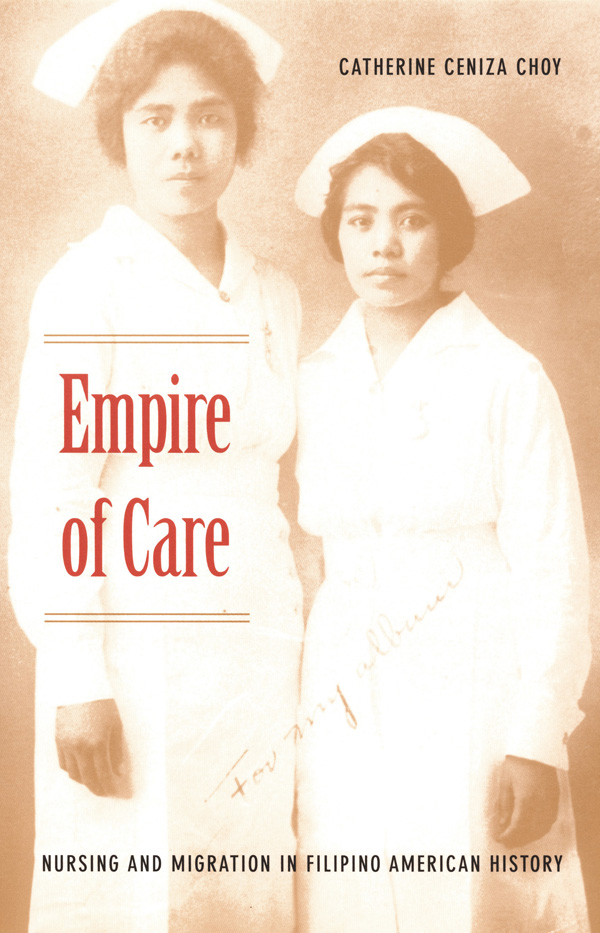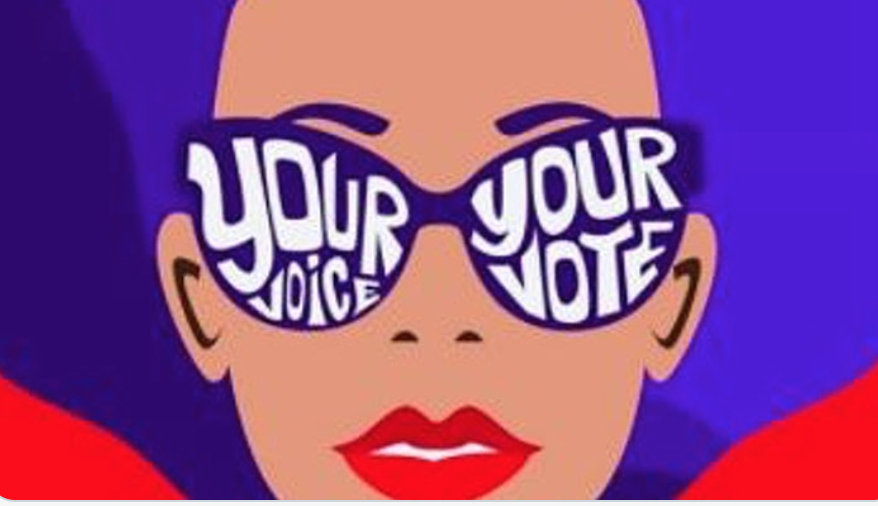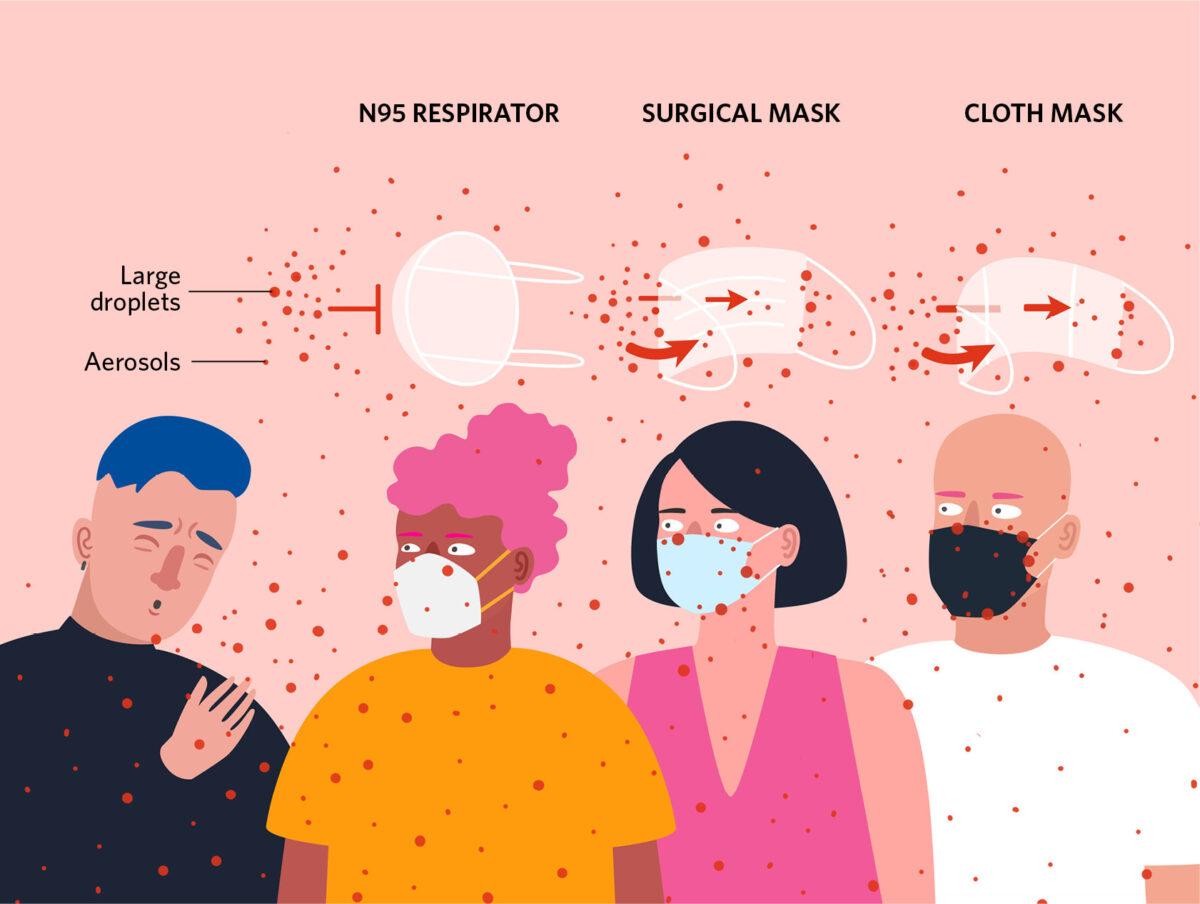Paying the Ultimate Price for Keeping America Safe
The image of the book cover, Empire of Care, published by Duke University Press, is posted with permission by the author, Catherine Ceniza Choy.
This article is written by Sunny G. Hallowell, PhD, PPCNP-BC, and Emerson E. Ea, PhD, DNP, APRN, FAAN. Bios and contact information can be found at the end of this post.
Covid-19 has been a nurse killer, and Filipino nurses have paid the ultimate price. One-third of registered nurses who have died from Covid-19 have
been Filipino, despite making up only 4% of the total nursing workforce.
Filipino nurses are not dying because of poor clinical practices or increased social exposures. They are dying because they are commonly employed in
acute and critical care, two of the most high-risk and strenuous healthcare
settings, which disproportionately place them at the front lines of the
coronavirus pandemic. As the second wave of Covid-19 surges the Filipino nursing community braces itself to continue to save American lives while
risking their own.
Filipino nursing practice in America is historically rooted in immigration
policies designed to recruit Filipino nurses as a source of inexpensive
medical labor to alleviate hospital staffing shortages. This system of
healthcare recruitment has been in place for more than a century. The
overwhelming majority of immigrant Filipino nurses hold baccalaureate
nursing degrees equivalent to US educational standards, and have met the
rigorous requirements, including language and communication necessary
to provide the highest quality of patient care for Americans.
Despite the long-standing historical relationship between the two countries that created the underlying structures which inadvertently formed a pipeline of health care workers from the Philippines to the US, Filipino nurses continue to be exposed to discriminatory and exploitative practices. The economies of both countries dictate the supply and demand of immigrant labor which is welcomed when the need for healthcare workers is high.
The migration of tens of thousands of nurses who graduate each year in the Philippines has created an urgent health care crisis in the Philippines
during this pandemic. Remittances from Filipinos working abroad including foreign nursing work account for 11 percent of the Philippine’s total gross domestic product (GDP). Without improved domestic hospital work conditions and incomes for nurses to discourage the outflow of healthcare expertise and skill, there remains little incentive to stem the outflow of human capital to the US and other industrialized nations requiring high-quality health care from educated professionals.
As the current pandemic continues to wreak havoc in the US, hospital
operators, immigration groups, and health industry advocates want the
Biden administration to relax immigration restrictions to allow approximately 15,000 foreign-trained nurses to come to the US to care for Covid-19 patients. However, if circumstances change and the need for immigrant labor declines the US position on immigration shifts to restriction, deportations, and xenophobic rhetoric. Research that suggests patient care provided by immigrant nurses may be dangerous, particularly if English is spoken with a foreign accent continues to underlie perceptions related to the quality of care without proper context. The same studies find that communication is not the primary reason for poor patient outcomes in hospitals that employ a higher proportion of foreign-educated nurses. Unsafe nurse staffing practices are far more dangerous and persist
regardless of whether nurses speak with an accent or not.
Utilization of immigrant nurses has significantly improved health outcomes of Americans. Persistently unrecognized are the benefits incurred from a diverse healthcare workforce. In addition to alleviating ongoing nurse staffing shortages, especially in rural areas and in hospitals that serve
highly diverse patient populations, Filipino nurses possess additional
language, cultural, advocacy and collaboration skills that enhance the work
environment. Nurse managers, administrators, and peer nurses can help
reinforce more stable healthcare teams by recognizing the contribution
value immigrant nurses bring to a healthy work environment. Hospitals may consider mentorship of immigrant nurses to cultivate inclusive healthcare teams focused on communication and teamwork within US systems and culture. These efforts may address structural and ethnic biases, especially against immigrant Filipino nurses, who are less likely to question authority and speak up especially if employed through work visas they may fear may be terminated by their employers.
Like many frontline healthcare workers, Filipino nurses struggle with health risk factors (e.g. diabetes, hypertension, cancer) and may live in
multi-generational households that increase their risk of coronavirus. They
may also grapple with the emotional and psychological toll of witnessing
first hand the suffering and tragedy brought about by the coronavirus
pandemic. It is important for Filipino nurses and organizations that support them, such as the Philippine Nurses Association of America (PNAA) to raise their voices and seek help, mobilize resources, and collaborate with others to address this looming mental health crisis.
The relationship between immigrants and the provision of American healthcare is rooted in imperialism. In order to restructure systems to be inclusive of diversity reflective of the populations it serves, the culture needs to shift at the bedside and especially within the highest levels of nursing leadership. This means that leading national organizations like the
American Nurses Association (ANA) and PNAA, must act urgently to
implement action plans that dismantle prejudicial behaviors, constructs,
and policies related to immigration and nursing practice. Both domestic and global interests are served with leadership and structure that support and protect immigrant nurses’ rights, health, and well-being. The recent
pandemic has provided an opportunity to begin this restructuring that may
be achieved through development of national health care policy to establish sustainable, transparent, and publicly-available data collection and dissemination processes regarding the disaggregated ethnicities of
Covid-19 cases and deaths. It would behoove President Biden’s Covid-19
Commission to recognize the disproportionate role of the Filipinx/a/o
community in American healthcare and to partner with this community and group of vital health care providers to develop a comprehensive federal public health strategy to plan the next phase of the Covid-19 response.
The American Dream may be greatly flawed, but for many immigrant
Filipinos, the nursing profession has made the pursuit of this ideal worth
working at the frontlines of the coronavirus pandemic, alongside American
nursing peers, and willingly sharing in their patient’s illness by risking
their own health.
AUTHORS:
Sunny G. Hallowell, PhD, PPCNP-BC
Assistant Professor and Pediatric Nurse Practitioner
Villanova University, M. Louise Fitzpatrick College of Nursing
Villanova University, Villanova, PA
Email: sunny.hallowell@villanova.edu
BIO: Sunny G. Hallowell is an Assistant Professor who teaches health
policy. She is also a health services researcher whose work explores
patient outcomes related to nurse staffing and hospital work environments.
Emerson E. Ea, PhD, DNP, APRN, FAAN
Clinical Associate Professor
Assistant Dean, Clinical and Adjunct Faculty Affairs
Rory Meyers College of Nursing
New York University, New York, NY
Email: eee203@nyu.edu
BIO: Emerson Ea is assistant dean and a clinical associate professor who has studied how Filipino immigrant nurses integrate themselves into a
different culture. His other research interests include innovation in nursing education, and Filipino immigrant health and well-being.
The image of the book cover, Empire





